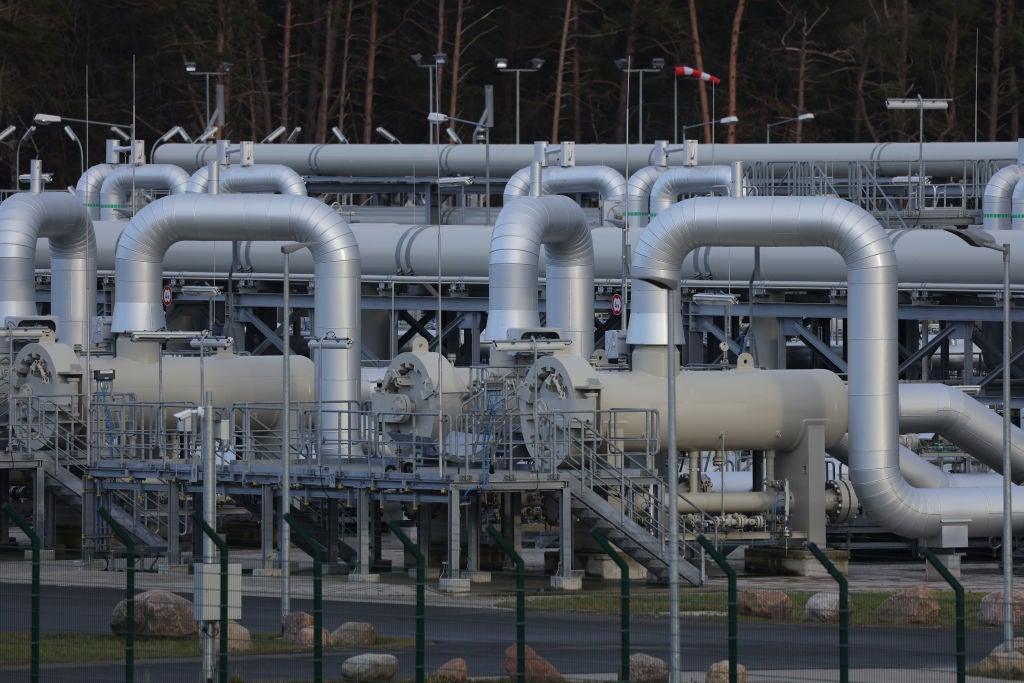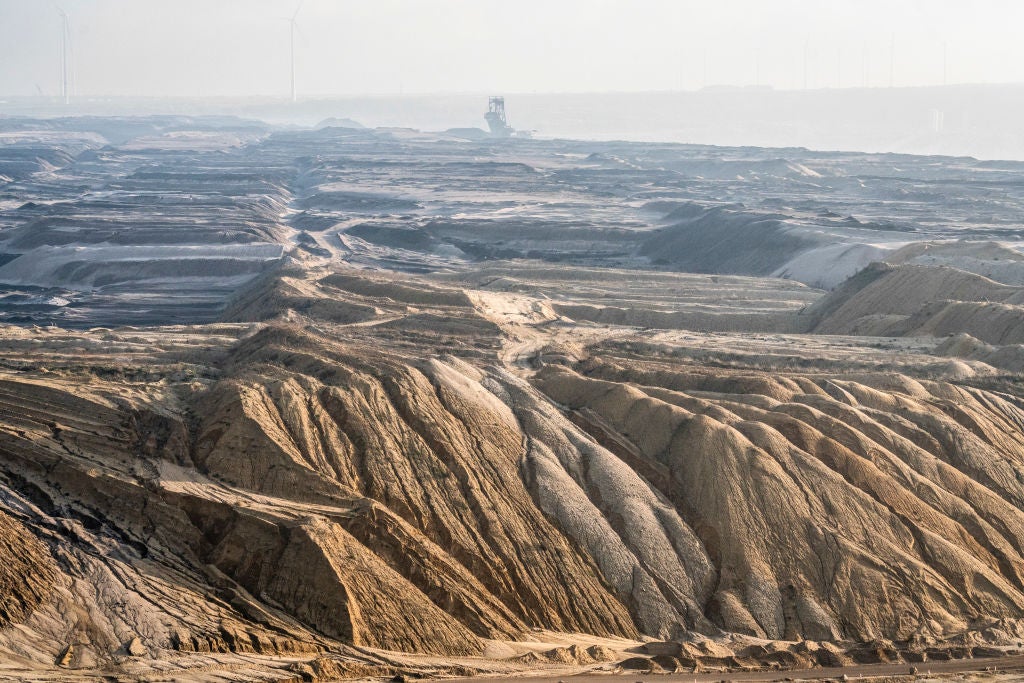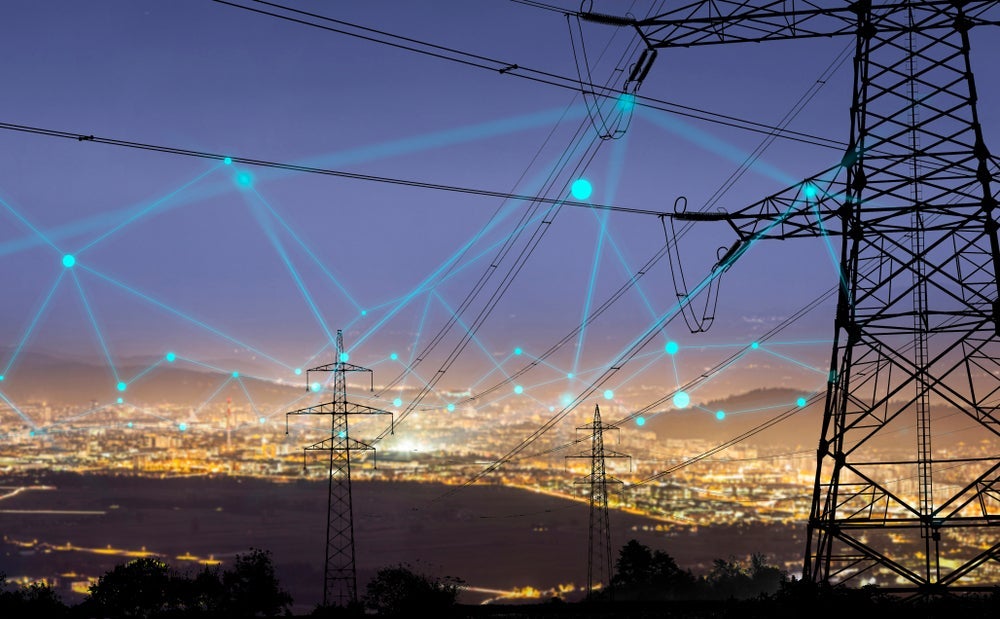In 2020, Germany was the European country that imported the most gas (42.6 billion cubic metres) from Russia, followed by Italy at 29.2 billion cubic metres, according to the International Energy Agency.
The chart below shows that Russian gas accounted for 65% of all of Germany’s gas imports in 2020.
This dependence has become particularly problematic in the aftermath of Russia's invasion of Ukraine, with the countries most opposed to Russia's actions looking to implement sanctions against its energy sector. The origin of Germany’s reliance on Russian natural gas, however, dates back decades and is deeply rooted in the country’s history and a widespread fight against nuclear power.
Germany's anti-nuclear tradition
Anti-nuclear movements started in Germany in the 1970s as local protests erupted to prevent nuclear power stations from being built.
See Also:
In 1975, 28,000 protesters occupied the construction site of a nuclear power plant in south-west Wyhl and succeeded in stopping it from being built. After the accident at the US nuclear power plant Three Mile Island in 1979, about 200,000 people took to the streets in Hannover and Bonn to oppose the use of nuclear power. More protests followed wherever locations for radioactive waste processing and storage were considered.
The anti-nuclear movement initially found support across the German political arena and became one of the key driving factors behind the foundation of the Green Party in 1980.
How well do you really know your competitors?
Access the most comprehensive Company Profiles on the market, powered by GlobalData. Save hours of research. Gain competitive edge.

Thank you!
Your download email will arrive shortly
Not ready to buy yet? Download a free sample
We are confident about the unique quality of our Company Profiles. However, we want you to make the most beneficial decision for your business, so we offer a free sample that you can download by submitting the below form
By GlobalData
The nuclear catastrophe in Chernobyl (in today’s Ukraine) in April 1986 took the relevance of the protests to the next level. After that, with a widespread majority of Germans expressing concern about the risks of using nuclear power, politicians started to stress that nuclear was a transient technology rather than a permanent one.
Protests against nuclear power continued throughout the 1990s until a coalition government formed by the Social Democrats (SPD) and the Green Party was elected in 1998 under the leadership of Gerhard Schröder. This government marked a watershed in Germany’s energy history as it reached what became known as the 'nuclear consensus'.
The coalition government negotiated with the country’s largest utilities to phase out nuclear power at a national level. The plan set a limit on the lifespan of existing plants to a maximum of 32 years, with the last plant scheduled to be taken offline at the end of 2022.
Germany's nuclear phase-out and Fukushima
The Christian Democratic Union (CDU), at the time led by Angela Merkel, called this decision a “destruction of national assets” and promised that, if elected at the next general election, her party would reverse that decision.
And so it did, when she was elected Chancellor in 2009 in coalition with the Free Democrats (FDP). This government extended the operating time for seven nuclear plants by eight years, and by 14 years for the remaining ten, in a move that become known as the 'phase-out of the (nuclear) phase-out'.
The decision sparked new protests, and in Berlin about 40,000 people took to the streets in 2010. Not long after that, however, three reactors of the Fukushima Daiichi Nuclear Power Plant in Japan suffered nuclear meltdowns and hydrogen explosions as a result of the Tōhoku earthquake and tsunami.
The disaster caused what many regarded as a knee-jerk reaction from the CDU-FDP government, which within days of the explosions decided to suspend the 2010 lifetime extension for a three-month period and to mothball Germany's seven oldest nuclear reactors for the same period.
A few months later, the government voted overwhelmingly (80%, with the only opposition coming from a left-wing party that wanted even stricter measures) to shut down eight nuclear plants for good and limit the operation of the remaining nine so that they would close by 2022.
The Ukraine-Russia conflict’s implications
With nuclear power out of the picture and a pressing agenda to phase out coal in order to achieve an energy transition to net-zero emissions by 2050, Germany now relies on renewables and natural gas to power its energy systems.
Until the 1970s, Europe supplied roughly the same volume of natural gas that it was using. Shortly after, however, natural resources in the North Sea started depleting and the Netherlands – an important supplier of the resource – decided to shut down its Groningen gas fields due to a high risk of earthquakes in the region.
At that point, Europe – and Germany in particular – turned to Russia, whose natural gas reserves were vast and whose supply was cheap.
Over the past 30 years, Europe’s use of natural gas has steadily increased, in part as a result of cutting out coal, the chart below shows.
The EU as a whole is the largest importer of natural gas in the world and the largest share of that gas comes from Russia (41%), followed by Norway (24%) and Algeria (11%).
When Russia invaded Ukraine in February 2022, the price of commodities – and in particular of oil and natural gas – saw a steep increase. Energy prices had already been under pressure for quite some time before the invasion, which added stress to the sector.
For this reason, initial sanctions focused on excluding key Russian banks from the payment messaging system Swift and freezing the assets of Russian oligarchs. The discussion around banning or curbing imports of oil and gas from Russia was slower, with the EU, and in particular Germany, proving hesitant.
However, on 8 March the US announced a complete ban on Russian oil, gas and coal imports. Around the same time, the UK said it would phase out the use of Russian oil by the end of 2022 and the EU announced a plan to make Europe independent from Russian fossil fuel before 2030.
“REPowerEU will seek to diversify gas supplies, speed up the roll-out of renewable gases, and replace gas in heating and power generation," said the European Commission’s statement. "This can reduce EU demand for Russian gas by two-thirds before the end of the year."
What are the alternatives for Germany?
Diversifying gas supplies is now imperative to make Europe independent from Russian supply, but that goal will take a long time, and the people of Ukraine need short-term solutions.
There are different ways in which Europe – and Germany – can choose to make itself less exposed to geopolitical risks when it comes to energy, and in particular gas supply.
Liquefied natural gas (LNG) is one of them. This type of gas is cooled down and can therefore be transported in containers. The US, along with European countries such as Portugal and Spain, has large resources, but getting them to Germany poses an infrastructure challenge, as new terminals would need to be built.
Germany, in line with EU policies, has been focusing on the roll-out of renewables, but that also does not offer an immediate solution in the face of the Ukraine-Russia conflict. The underlying infrastructure is still not set up to handle the intermittence of renewable energy – to store energy for when the sun does not shine and the wind does not blow.
“In the short term, Germany has two main options to wean itself off Russian gas: increase piped gas imports from existing suppliers or increase consumption of LNG,” says Franca Wolf, senior analyst at risk consultancy Verisk Maplecroft.
“Both alternatives come with their pitfalls. Replacing the share of Russian gas with increased imports from Norway and Netherlands, the second and third-biggest existing suppliers, is limited by the fact that Norwegian production is already at capacity and the Netherlands is seeking to phase out production at its largest gas field in Groningen.
[Keep up with Energy Monitor: Subscribe to our weekly newsletter]
“Importing LNG directly requires import terminals that Germany lacks, and recently announced plans to build two terminals will take time to become reality.”
Academics and analysts have suggested other options, including temporarily resorting to coal and nuclear power and reducing consumption, as short-term measures.
A team of professors led by Lion Hirth from Hertie School wrote an open letter to European policymakers in which they highlight the importance of reducing reliance on Russian energy resources and outline a number of solutions.
“Time is pressing and the planning horizon is short,” the authors said. “Unlike electricity, natural gas can be stored. That is why conservation and diversification measures should begin immediately, well before next winter. Every kilowatt hour of natural gas we save this March eases the supply situation this year and possibly into March next year."
As well as accelerating the buildout of renewables, sticking to the climate agenda and procuring LNG in the short term, the authors suggest using less popular energy sources and reducing consumption at the consumer end.
“For the next few years, all available coal and nuclear power plants are to be maintained or reactivated,” the letter said. “Extending the lifetime of coal and nuclear power plants by a few years (between two and five) seems reasonable. This in no way calls into question the fundamental nuclear and coal phase-out, but contributes to our energy diversification in the short term.”
The letter also calls for consumers to do their bit. “Significant comfort restrictions next winter are conceivable and may be necessary," it said. "Half of Germany's natural gas consumption is used to heat residential buildings and offices. Reducing the room temperature among individuals and families in their homes is by far the most effective option for the next two winters to reduce consumption.”
Reducing the reliance on Russia
The reliance of Germany – and of Europe as a whole – on Russian fossil fuel resources is an issue that certainly requires short-term solutions to try to counter Vladimir Putin’s offensive in Ukraine.
However, these historic circumstances should serve as a warning to the EU’s largest economy and to the entire bloc to rethink their energy policy in the long term.
“If the EU hopes to sustain bold and far-reaching sanctions in the face of potential Russian economic countermeasures, Brussels needs to prepare for a long fight," concludes a paper from think tank Bruegel. "To be effective, after all, Putin must worry that Europe might keep sanctions in place for several years. Time-limited measures might be painful for certain parts of Russian society but are unlikely to fundamentally change Moscow’s calculus.” This underlines the extent to which Europe must take Russia out of its energy equation and the speed at which it must be done.
Editor’s note: This article was originally published on our sister site Investment Monitor.
Understand the impact of the Ukraine conflict from a cross-sector perspective with the Global Data Executive Briefing: Ukraine Conflict







